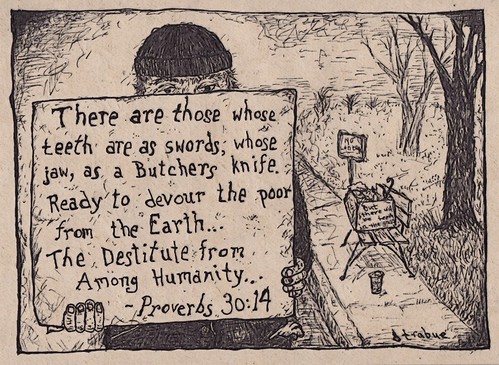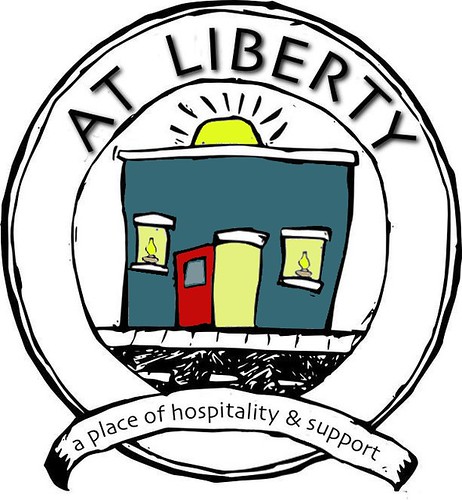Friday, October 25, 2013
Monday, October 21, 2013
In Defense of Public Schools
Many people like to beat up public education. And, of course, public education can use improvement. But I've always objected to comparing public school scores to private school scores as a measure of success. It's apples and oranges.
Private schools can kick you out. Public schools can't - not easily. Private schools you have to work to get in - there has to be at least parental effort involved, if not student effort. And do you know what studies indicate the #1 predictor for student success? Not socioeconomic factors (although that plays a big role). Not parental education level. Not even student aptitude. The #1 predictor for student success is parental involvement and concern.
So of course, it is not surprising that private schools tend to score higher than public schools. But, as noted, it's an apples and oranges comparison.
I just read some research that gets to this point and concludes that, pound for pound, public schools are the heavy lifters and better value for education. Read on...
Sarah Theule Lubienski didn’t set out to compare public schools and private schools. A professor at the University of Illinois at Urbana-Champaign, she was studying math instructional techniques when she discovered something surprising: Private schools—long assumed to be educationally superior—were underperforming public schools.
She called her husband, Christopher A. Lubienski, also a professor at the university. “I said, ‘This is a really weird thing,’ and I checked it and double checked it,” she remembers. The couple decided to take on a project that would ultimately disprove decades of assumptions about private and public education.
Studying the National Assessment of Educational Progress and the Early Childhood Longitudinal Study, they have found that, when controlling for demographic factors, public schools are doing a better job academically than private schools. It seems that private school students have higher scores because they come from more affluent backgrounds, not because the schools they attend are better educational institutions. They write about these conclusions—and explain how they came to them—in their book, The Public School Advantage: Why Public Schools Outperform Private Schools. Here’s an interview with the Lubienskis about their work, edited and condensed for clarity and length.
Summarize your work:
CAL: We already know that scores for students in private schools tend to be higher. The question is, is that because they’re from more affluent families…or is that because the schools are doing better? If you go back for a generation the research suggests that there is a private school effect, that even when you control for background factors, private schools seem to be more effective, particularly for certain populations, at boosting their achievement.
So what we did, controlling for these background factors, we actually found that the opposite appears to be true and that there is actually a public school effect. Which was a surprise… We were not expecting that at all, but then digging deeper into the data, using multiple data sets, that actually held up. And since that time, other researchers—people at the Educational Testing Service, Notre Dame, and Stanford—have looked at these data sets and come to similar conclusions.
Read more.
Monday, October 14, 2013
Beware the Meddlers...
I've been discussing the notion of Meddling with Craig and others over at another blog. The question was raised by the blogger, "Why do people object to people saying 'That behavior is wrong...'?" and I had responded that, at least in some cases, it's because we don't want to meddle. And why don't we want to meddle? Because meddling is wrong.
And, since this was a Bible crowd (ie, folk who like to be "convinced" by Bible passages), I pointed out that St Paul includes "meddlers" in with a list of sinners including murderers and evil-doers. Biblically, and just rationally, meddling is wrong, it's annoying, we should avoid it.
Craig allowed that, okay, that is a legitimate verse, but still, he said...
If I truly cared about my friend or family member wouldn’t it be more caring and loving to encourage and support moving toward behavior that is as minimally sinful/harmful as is possible?
And, after some back and forth (my answer was, "Generally, No, it's not more caring."), I tried another approach...
Look at it this way: There's a whole world of behaviors that are potentially right/wrong... good/bad. We feel more certain on some behaviors and our opinions are less strong on other behaviors.
Should I use a gas mower to cut my grass?
Should I move to a house/apartment that is so far away that I have to drive to work?
Should I move to a city with no public transit?
Should I buy a coke and popcorn at a movie when there are so many people starving?
Should I go to a movie at all, spending money frivolously when people are starving? How about a matinee for $3? What if I rent it for $1??
Should I divorce my abusive spouse? What if the abuse is only verbal?
Is smoking cigarettes sinful in God's eyes? The Bible never says so, so is it okay???
You get the idea. There are a multitude of choices and behaviors that we make each and every day. Any and all of those choices are potentially "sinful," if you are of that mindset, right? And if we don't speak up on "sinful" behavior of others, then are we being loving?
Where would you draw that line? Surely you don't spend all day offering your opinion to a variety of strangers and friends or acquaintances on what you think God thinks is wrong, do you? Because, "IF you truly care for a friend, isn't this the right thing to do... to offer my opinion on the hundreds of daily choices we make that might be sinful...?"
No, I don't think being loving requires us to offer our opinions about what WE think God thinks. For one, I think that is presumptuous - these friends and neighbors are free moral agents, created in God's image, just a little lower than angels. Do they really need me to guide their each step, in my effort to love them?
No, I don't think so.
When you look at it like that, Craig (and anyone else), can't you at least agree a little bit with me? If you can't, then where do you draw the line? Or do you NOT draw a line and you truly go around all the time offering your opinions on all these potential "sins..."?
Of course, God hasn't told any of us what is meant by "meddlers," so I'm entirely offering my opinions here, but I think the whole problem with meddling - why it seems to be treated so seriously - is the presumption it implies on the Meddler's part.
The word translated Meddler in the Bible, according to the Bible Dictionary website...
Allotriepiskopos literally means “not one’s own overseer.” “Not one’s own” is one word and “overseer” is the other. It means, thus, “one who oversees others’ matters or affairs.”
Which is pretty much the same as the Merriam Webster English definition...
to become involved in the activities and concerns of other people when your involvement is not wanted
The idea is that it's taking a place of Overseer, or The Authority over another person, unasked and un-welcomed, and this just seems presumptuous. Who am I to decide for you how you spend your days? Who am I to speak authoritatively as to what God wants for you?
From a Christian point of view, this presumption appears to be putting us in the place of god over another person and I think we can see how that could be terribly troubling.
Now, I did make it clear that I think there are limits to "bad" meddling. That is, if I'm part of a community/group that is asking one another to help hold one another accountable, then I HAVE given permission for someone to tell me when I'm in the wrong. For a simple example: The alcoholics group, where they have agreed to be accountable to one another to help them all succeed in getting away from their addiction. And so, mutual accountability is not meddling.
And, of course, an intervention in the case of someone harming someone else, that is not what we would typically call meddling, or, if it is meddling, it is a righteous/acceptable meddling.
But assuming no overt harm is being done to someone else and assuming that they have not invited me to tell them when they're wrong, then I'd lean pretty heavily AWAY from meddling because, well, meddling is wrong. It's to be avoided. We can't afford to put ourselves in the place of God in someone else's life. That just won't help.
Seems to me.
Saturday, October 12, 2013
A reflection
...and sometimes what I see
in you is upside down and
backwards from reality...
...or is that me?
Monday, October 7, 2013
At Liberty!
My church, Jeff St Baptist Community at Liberty, has begun a crowdsource funding effort to raise money for the At Liberty Hospitality Program. At Liberty is a day shelter open every morning, Monday through Friday. It provides a welcome and safe place where our homeless friends can get out of the weather, have a cup of coffee and a bit of breakfast, and receive medical assistance, social service assistance, clean up, make phone calls and generally get help and friendship.
We have been running At Liberty for ~30 years on a shoestring budget and, with funding getting tighter, we've decided to try to help keep it funded with this crowdsourcing campaign.
Check it out...
http://igg.me/at/AtLiberty/x/4613332
Please visit there, link to it, share it with friends, like it on Facebook, give it a pat on the head and send it on its happy way! And, if you like the idea of supporting At Liberty, consider becoming a supporter for this wonderful place of welcome and service for our homeless brothers and sisters.
And, if you're not in a place to support it financially, then please pray/think helpful thoughts for the ministry, visit it (if you're in Louisville) and mention it to your friends. It really is an amazing and vitally needed (unfortunately) ministry.
Thanks!
Tuesday, October 1, 2013
What You Did...
This last Sunday, our pastor talked in her sermon about our homeless ministry. For nearly 30 years, we've had a day shelter open, Monday through Friday, where our poor and homeless brothers and sisters can rest for a few hours, receive medical assistance, social assistance and where, most of all, they can be truly welcome. For many of our homeless friends, they tend to be pushed away, shunned and encouraged to move on... they are simply not welcome most places.
It may be a small thing, but we strive to at least provide for them this one small place of welcome. Thanks be to God for the faithfulness of our Minister with the Homeless and the volunteers who've kept this going. And I'm thankful for Cindy, my pastor, for preaching another great sermon.
Here's an excerpt from the sermon. She was preaching on the biblical text about the Shumannite woman who welcomed the prophet, Elisha, into her home...
...The Shunammite woman was able to recognize Elisha as a holy one, and to treat him accordingly. And I, of course - on this morning when we are celebrating our ministry of hospitality as a community - am thinking about how we recognize the holy ones in our midst, how we make room for them.
As I see the Shunammite woman in my mind’s eye, I can’t help but think of David and Tim, who come to this building while it’s still dark, to begin to cook, of Clifford, who comes in and rolls out the coffee and creamer and sugar, and makes sure that there’s plenty of it throughout the morning, of Diane, who opens the doors at 7:00 am, and invites in the holy ones. Now, they don’t look holy, mind you. They look like our society’s refuse, some of them, raggedy beards, disheveled clothing, shoes that don’t fit. No, they don’t look particularly holy. They look like they haven’t had a place to lay their head for the night, and many of them haven’t.
According to our records, about half of the men who come to our Hospitality Program “sleep out,” meaning that they lay their heads wherever they can, down by the river, under a bridge somewhere, in an abandoned building. No, they don’t look holy, and some of them don’t act so holy, either: “Sorry, Diane,” they say in between profanities.
But because Jesus was able to recognize the holy in his midst, and gave us some clues to look for—“whatever you do to the least of these, you do to me,” he said—we know, on our best days, anyway, deep in our gut of guts that these men and women are somehow holy, are somehow him. And so at 7:00 a.m., Diane opens our doors to the holy, welcomes them into this place that she, like the Shunammite woman has so carefully prepared, and they shuffle in like Elisha, deeply appreciative of the coffee and newspaper and telephone and space and place that has become like a second home.
How blessed we are, as a community, to have been able to provide this ministry, this great gift of hospitality for the last 30 years…Of course, hospitality doesn’t just happen on weekday mornings. I’m wondering, who are the other holy ones in our midst, the holy ones that might not look so holy or act so holy, but who, like our homeless friends, are in need of a tender touch, in need of a welcome word, in need of a conversation that feels like home? The Apostle Paul tells the church that we should be “given to hospitality.” Given to hospitality.
Who are the other Elishas in your world? May we recognize them, and make for them a special place.





